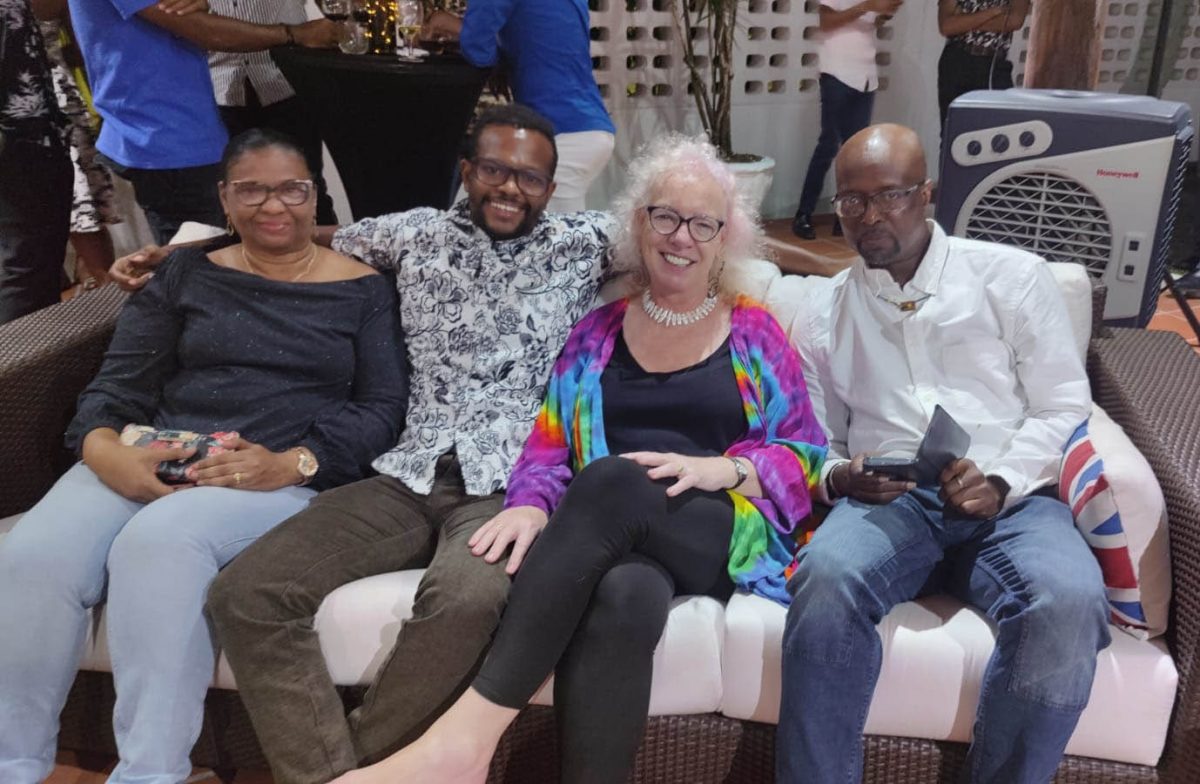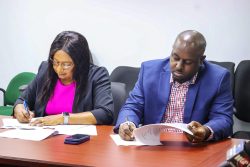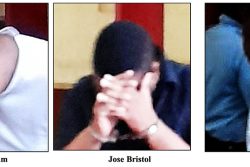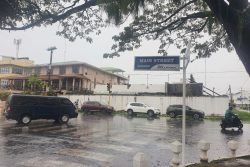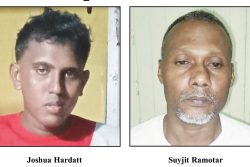I was 11 years old when I saw Jamie Foxx become Ray Charles in the film Ray. I had known Jamie Foxx as a comedian and a singer, but the man on screen was not Jamie Foxx; he was Ray Charles. Months passed and Foxx’s transformation stuck with me. At 11, I didn’t know I would end up working in film, but at 15 I knew nothing else in this world would satisfy me.
I saw Heath Ledger in the Dark Knight and it was the most captivating film I had ever seen. His performance mesmerised me and I have watched this film at least a dozen times. At school, I began quoting from the film. I began to annoy my friends by constantly insisting they watch it. Eventually, they all acquiesced and could not stop ranting about it. My love affair with cinema had officially started.
I began to devour every film I heard great things about; Akira Kurosawa, Martin Scorsese, the Coen brothers – Ethan and Joel – and Quentin Tarantino created magical worlds for me. They invited me to their worlds and I met people from places I didn’t know. Kurosawa taught me about the life of the Japanese samurai. Scorsese showed the tenderness of familial love in Italian gangsters but juxtaposed this with visceral and cruel violence. The Coen brothers made me laugh about the nihilistic and absurd nature of life and human beings. Tarantino taught me that violence can be one of the funniest things to occur on screen. He also made me want to write scripts after I saw Pulp Fiction.
From this moment, I bombarded my friends and family with movie suggestions. I became agitated if we were watching a film and they decided to text. I would pause the movie and wait for them to finish. The movies I picked were to be revered and they were disrespecting it by texting.
The next two years I spent reading every book I could find on screenwriting and I penned my first script. I was 18 years old when I wrote a script about the Ku-Klux-Klan; an experience I had never shared and which was unique to American history. I had done months of research on this. American cinema was my early film education and subconsciously I believed that if I were to make films, it would not be in Guyana. I never saw Guyanese films and the ones I did see were marred with technical issues and acting that felt fake. Added to this was the fact that I am painfully shy.
Then my mother cast me into a world that would change my life forever; theatre. She had observed me writing scripts and figured attending the National Drama School would be the best place for me to express my creativity.
It was my first interaction with a community of storytellers. I excelled at theatre. My first production, Creative Burial Ground, won best production in the junior category. It was directed by one of my closest friends and collaborator, Nickose Layne. I bought my first camera and attempted to make two films. The films were bad and I no longer have them. I was robbed. But despite the mediocre quality, we were excited to create. It was a learning experience for us and we knew what we had to correct to make a good film. But we had to wait: Nickose went off to study theatre arts at the University of the West Indies in Trinidad and I was studying literature and linguistics at the University of Guyana.
The programme has helped me tremendously in my filmmaking journey. Constant analysis of literature crosses over with filmmaking. They are both storytelling mediums but with different grammar. Once I learned filmmaking grammar: types of lens, types of lighting, editing techniques, the journey became easier. I embraced my strength for storytelling.
I realised that Guyana not having a vibrant film industry does not mean we are incapable of having the world see us. I also realised that the filmmakers I enjoyed leaned into their experiences. Scorsese grew up in machismo culture. Kurosawa understood rural Japan. The Coen brothers often set their films in places they are familiar with. I needed to do the same. I saw the talent of our actors on stage.
It was just a matter of honing it and showing them that the craft of acting for film is different than theatre.
I wanted the world to connect with our stories. I connected to New Yorkers, Italians, Japanese and many nationalities around the world, but I did not connect with anyone who looked or spoke like me. I connected with these people because the writer and director managed to capture a universal humanity. Human beings have different cultures but underneath that difference is emotion, which is universal.
Guyanese are no different than the characters I saw. The only thing that separated me from world-class filmmakers was resources, but this too was becoming an obsolete excuse. I was explaining to someone that I truly feel I was born at the right time. I exist in the time of the internet and information about the craft of filmmaking is so ubiquitous that I didn’t have to break the bank for my dreams to come through. I just needed to convince Guyanese that their stories are just as worthy to be told and we need to form a community for our films to travel. Filmmaking is not an individual endeavour. For any dream to be accomplished, a community needs to be behind it. People have to recognise that what a creative does has value. A huge part of that recognition comes in the form of sustaining the arts financially and understanding its value.
On Thursday, March 9, the British High Commission hosted a fundraising event that supported me and fellow filmmaker Nickose Layne’s travel to London. Our film, Eating Papaw on the Seashore, which chronicles the love between two young boys, will be the first film made in Guyana with an all-Guyanese cast and crew to premiere at the British Film Institute.
I certainly was surprised because I had lowered my expectations about the film’s reach but I am grateful because I did not need to tell an American story to cross borders. I simply needed to show the world that Guyanese are talented and we have stories of humanity to share too.
The gesture and event were important because they showed commitment by an embassy that understands the need for expression and creativity. We need these incentives to keep the creative world in Guyana alive. We are humans and we can connect. There are stories of betrayal, love, murder, mental decline in the fabric of our identity. We need to explore this from our own lens. Because while these themes are universal, our culture can bring a fresh perspective. I felt it was important for us to see ourselves on screen.
It turns out that Guyanese creatives have managed to move audiences in California, Nairobi, Fortaleza, Vancouver, Johannesburg and London. It is my hope that our filmmaking community can have continuous support so we can preserve our stories through the screen.
